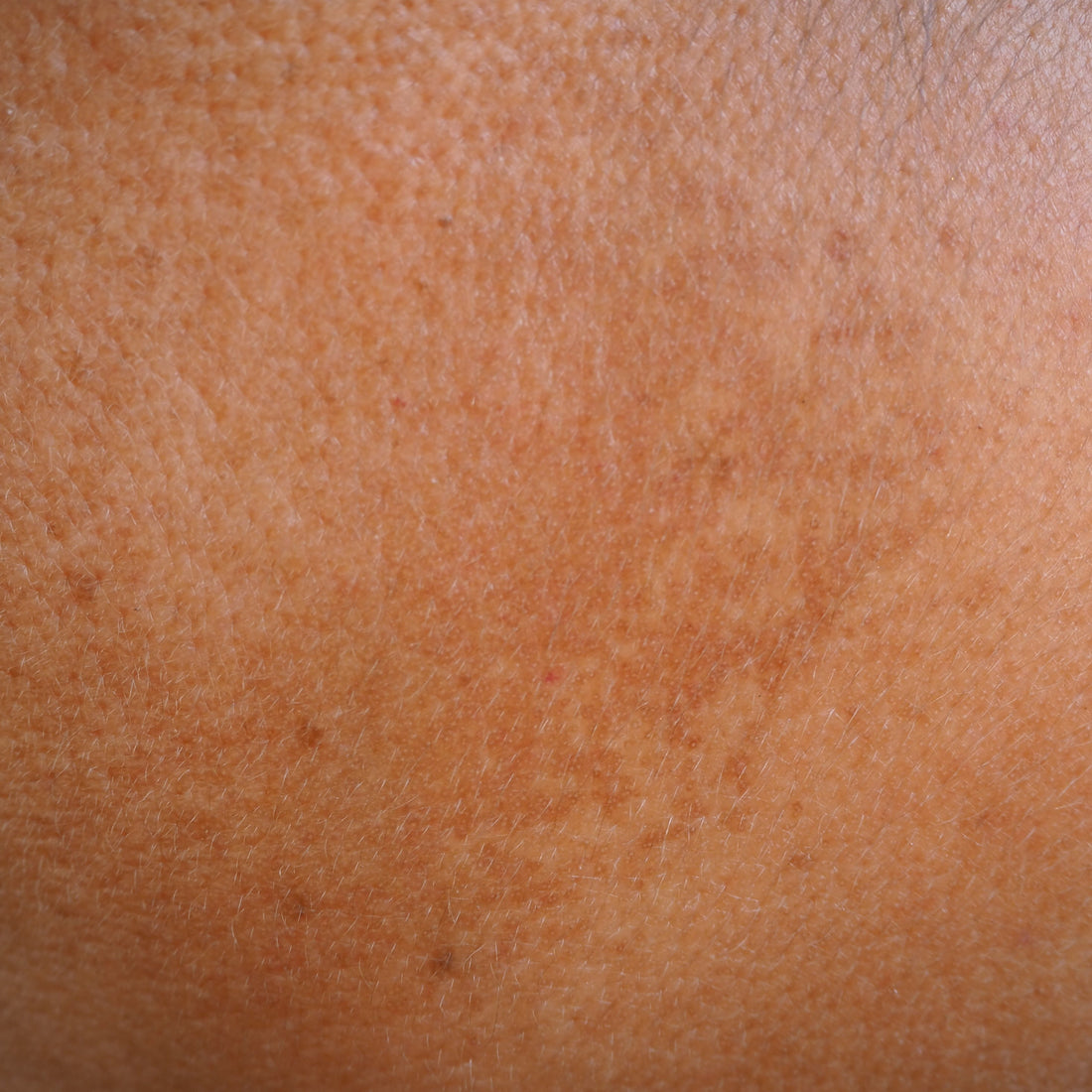
Melasma, pregnancy and darker skin tones - what should you do?
Share
Melasma, a common skin condition characterized by brown or gray patches on the face, is often associated with pregnancy. While anyone can develop melasma, certain factors like genetics, skin tone, and sun exposure can increase the risk of developing the condition.
Individuals with darker skin tones are more likely to develop melasma during pregnancy, as are those with a family history of the condition. Melasma can also be triggered by hormonal changes and certain medications.
While it may not be possible to completely prevent the appearance of melasma during pregnancy, there are steps you can take to minimize its severity. These include avoiding prolonged sun exposure, wearing a wide-brimmed hat when outside, and seeking shade during the hottest parts of the day.
In addition to sun protection, using skincare products containing ingredients like vitamin C, niacinamide, or azelaic acid can help to lighten and even out the skin tone. If you develop melasma during pregnancy, consult with a skin professional to determine the best course of treatment.
Here are pregnancy safe products to treat melasma during and after pregnancy.
